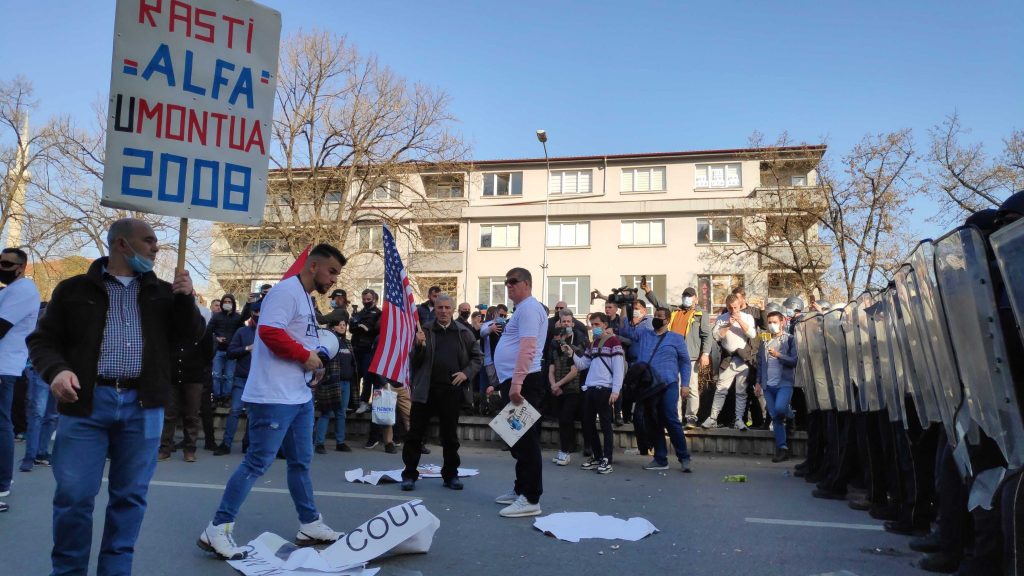Fresh bid to review ethnically-charged cases
In December, ethnically-charged terror trials returned to the spotlight when the Social Democrat-led government accepted a demand from a small Albanian party called Alternative for an international investigation into several of these cases.
But the deal, which saw Alternative join the government, raised more questions than it answered. First, Alternative party spokesperson Orhan Murtezani revealed that, under the deal, Prime Minsiter Zoran Zaev had agreed to an “international investigation” into the contested court cases, to resolve suspicions of “political influence”.
The most notable cases are the 2012 Skopje mass murder and the shootout in Kumanovo in May 2015 that left 18 people dead, including eight police officers, for which the surviving members of the armed group involved, all ethnic Albanians, were given long jail sentences.
Later, Zaev rushed to clarify matters. He insisted that the agreement did not automatically mean more retrials in the cases. The international investigation “was agreed because trust in the court system has been shaken for a long time. But this does not mean that someone will be able to annul court verdicts, or do something contrary to our laws,” he said.
He said the plan was for the government to ask the European Commission to send a “team of independent experts” to carry out “international investigation of the processes, where there are suspicions that they were politically influenced”.
Bearing in mind that the Skopje murders case has already been retried, and was monitored by domestic and international observers, and that the Kumanovo shootout case is also near its finish, with only the Supreme Court left to decide over the terrorism convictions handed down to the defendants, some legal experts asked how it would now be legally possible to revisit these cases once more.
This prompted President Stevo Pendarovski to tell Telma TV that the country could only reopen such cases “if new evidence appears that has not been available before”.
Meanwhile North Macedonia ended 2021 on a somewhat sour note with neighbouring Kosovo, as its Prisons Directorate told media that it had rejected a request by Kosovo’s Justice Minister Blerim Salahu to visit the prisoners convicted in the Kumanovo shootout case.
“The minister is a political and not a consular representative,” the Directorate noted in justification of its decision.
In the Kumanovo shootout case, seven of the 37 defendants got life sentences in 2017. The rest mostly got long jail terms, and four men were acquitted. Sixteen of the 37 were originally from neighbouring Kosovo and are former members of the Kosovo Liberation Army.
The defendants insisted all along that they were victims of a political set-up by the former North Macdeonian government led by Nikola Gruevski, and asked for an international investigation. But in July 2019, the Appeals Court confirmed the verdicts, and now the only hope for the defendants is the Supreme Court.
(Note: This is an unedited and auto-generated story from Syndicated News feed. PriyaSaha.Com Staff may not have modified or edited the content body. Please visit the Source Website that deserves the credit and responsibility for creating this content.)

